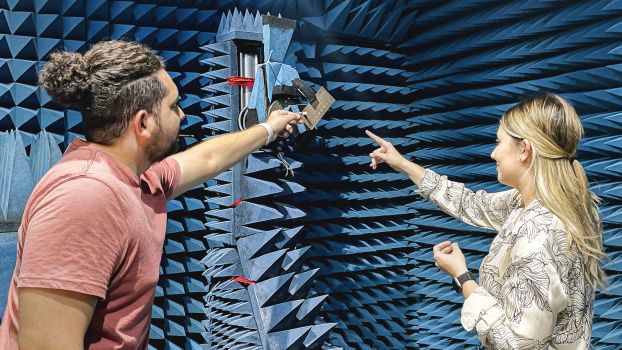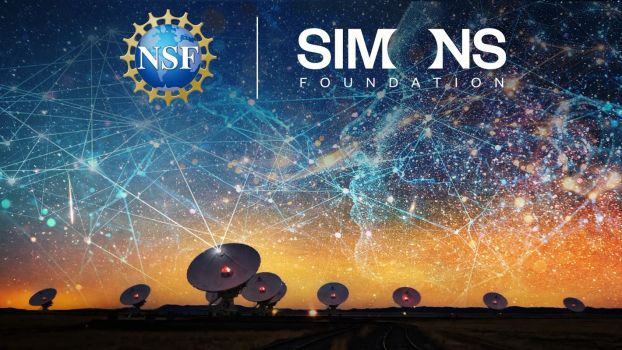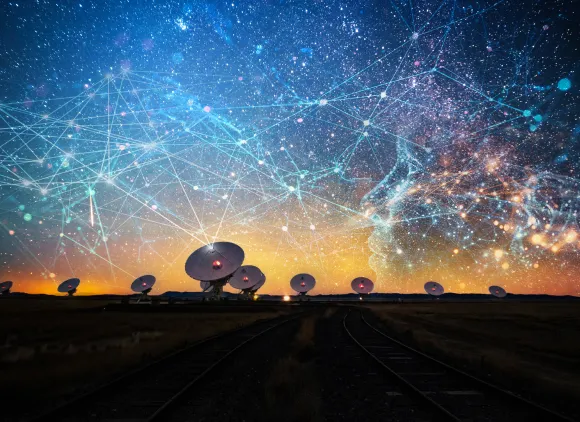The U.S. National Science Foundation Division of Astronomical Sciences (AST) funds the NSF Center for Advanced Radio Sciences and Engineering (NSF CARSE) and two artificial intelligence institutes devoted to astronomical sciences.
These interdisciplinary efforts bring together researchers of different disciplines to work together on complex and highly ambitious projects, including developing new technology and tools for broad use by the astronomy and astrophysics communities.
 On this page
On this page

NSF Center For Advanced Radio Sciences and Engineering (NSF CARSE)
Established in 2022, NSF CARSE provides an interdisciplinary environment for scientists, engineers and educators to partner with industrial and government partners on research and development for radio science technologies used in radio astronomy, atmospheric sciences and other applications.
CARSE is led by the University of Puerto Rico at Mayagüez in collaboration with the University of Central Florida and the NSF National Radio Astronomy Observatory.

NSF-Simons AI Institutes for Astronomical Sciences
In partnership with the Simons Foundation, AST supports two institutes focused on assisting and accelerating humanity's understanding of the universe by harnessing the uniquely powerful abilities of AI. The institutes are part of the NSF-led National Artificial Intelligence Research Institutes program.
Both institutes aim to advance the capabilities of AI beyond just astronomical sciences so it can become a more useful tool for all scientific disciplines involving large datasets, sophisticated models and the iterative process of generating and experimentally testing theories. The institutes seek to empower researchers at all career levels by providing access to trustworthy AI that can access all published astronomical data and findings and rapidly conceptualize and assist in research projects.
NSF-Simons AI Institute for Cosmic Origins (NSF-Simons CosmicAI)
NSF-Simons CosmicAI aims to accelerate traditionally time-consuming aspects of astronomical research, such as processing and analyzing large amounts of data and creating and evaluating simulations of complex phenomena like the chemical processes within stars. The institute plans to democratize access to astronomical data and analysis by developing a powerful AI-based assistant that provides accurate responses to scientific queries.
NSF-Simons CosmicAI is led by The University of Texas at Austin in collaboration with NSF NOIRLab, the NSF National Radio Astronomy Observatory, the University of Utah, the University of Virginia and UCLA.
NSF-Simons AI Institute for the Sky (NSF-Simons SkAI)
NSF-Simons SkAI will tackle exceptionally complex problems in astrophysics and astronomy across a broad range of cosmic scales, from the physics of exotic objects like neutron stars and black holes to the formation of galaxies and the role that dark matter and dark energy play across the entire universe.
NSF-Simons SkAI is led by Northwestern University in collaboration with the University of Chicago, the University of Illinois Urbana-Champaign, the University of Illinois Chicago and the Adler Planetarium.

